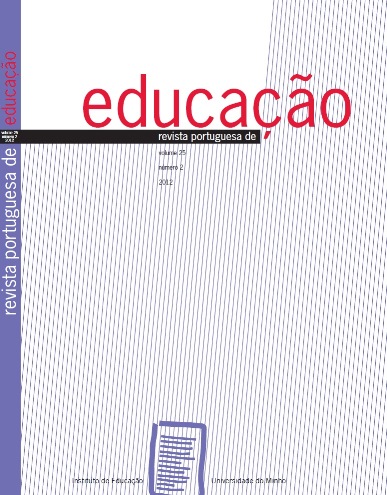MEMORIES OF CHILDHOOD IN A RURAL AREA: THE SCHOOL AND OTHER SPACES OF SOCIABILITY (MINAS GERAIS — BRAZIL, 1920-1950)
DOI:
https://doi.org/10.21814/rpe.3000Abstract
This paper analyses the representations of childhood by women of rural communities from the state of Minas Gerais, in the first half of the 20th century, who have migrated to Belo Horizonte as adults and live in a suburban area of the Minas Gerais capital. We interviewed 13 women, and gathered demographic data and educational legislation of that period. During the interviews, the recurrent statement “I had no childhood” can be understood as
a contraposition made by them between a supposed ideal childhood, related to socially privileged classes, and childhood nowadays, the one they were excluded from. The evoked memories refer to the intense work routine in the field and in other people’s houses, the hardships to frequent a school, the poor state of the clothes, the lack of toys, but also the joyful moments of games and the participation on religious celebrations. Family, work and religion compete with the school as important spaces of sociability.
Keywords
Childhood; Rural school; Women; Sociability spaces
Downloads
Downloads
How to Cite
Issue
Section
License
1. The authors preserve their authorship and grant the Portuguese Journal of Education the right to the first publication. The work is licensed under Creative Commons Attribution License that allows sharing the work with the acknowledgment of initial authorship and publication in this Journal.
2. The authors have the right to take additional contracts separately, for non-exclusive distribution of the published version of their work (e.g. to deposit in an institutional repository or as a book chapter), acknowledging the initial authorship and publication in this Journal.
3. The authors have the permission and are stimulated to post their work online (e.g. in an institutional repository or on their personal website). They can do this at any phase of the editorial process, as it may generate productive changes, as well as increase impact and article citation (see The Open Citation Project).
The work is licensed under Attribution-ShareAlike 4.0 International (CC BY-SA 4.0)




















